The End of the 00s: Imagined Responses to Four Emails That I Sent, To Which I Have Not Yet Received...
The End of the 00s: Imagined Responses to Four Emails That I Sent, To Which I Have Not Yet Received a Reply, 2000–2009, by Juli Weiner
by The End of the 00s

Dear Juli,
Received your query about the frozen chocolate chip cookie dough. You mentioned, quoting you here, “There were 24 cookies when I put them in the freezer last night, and now there is just one and a half-eaten bit of another.” I feel somewhat responsible because I will completely admit to having two cookies. Totally and completely-that was me, those two, and believe me, I feel really gross about it. And the fact that you noticed the, again, quoting you here, “sandcastles of cookie crumbs around [my] bed” makes me feel even worse. Now of course, you’d be remiss to conflate my feelings of guilt with actual awareness about having done something wrong. It is one thing to take two cookies, for which I am so sorry, but quite another to take 22 and a half of a bit. It’s disrespectful, is what it is, for someone to have eaten the remaining-okay, just, you know what?
Being completely honest here because my therapist/nutritionist [redacted] told me that this would help my [psychological disorder redacted]: I ate the cookies. All of them, except the one and that remaining half a bit. Enclosed is a check for $6.99.
Yours,
[Redacted]
Dear Juli,
Wow you know, that is so [redacted], ever since my girlfriend of two years and I mutually broke up about six months ago, I had been meaning to [redacted] to ask if you want to get together for drinks, dinner, a night of catching up at your apartment in [redacted] Heights, located mere blocks from my place of employment-really anything. I’ve also really valued the [redacted] and [redacted] rapport we’ve crafted over the past two years, and likewise feel that it’s a fine basis for a [redacted] relationship. In fact, the only reason I did not email you sooner after non-messily breaking up with said girlfriend was because I wanted to make sure that you knew that there was a considerable period of time between the end of that relationship and the beginning of this, [redacted].
Drinks at Apotheke sound [redacted]. 9 PM on Saturday? I’ve already procured this extremely-hard-to-procure reservation.
Cheers,
[Redacted]
Hey,
That was weird, that thing I said to you the other day. Sorry for being such a freak.
Respectfully,
[Redacted]
Dear Juli,
It’s completely fine that you missed this afternoon’s seminar. I hope you feel better! And you know, even if you didn’t actually have a migraine, I would still have understood if you opted to skip class. After all, it is my fault that discussions are generally banal, overreaching, and programmatic-and that’s just when I can get students to participate at all! Ha ha! As I’m certain you’re acutely aware, more often than not, the only words puncturing the ringing silence are mine, and they’re usually: “So, no one agrees or disagrees?” I would definitely understand if you preferred sleeping to serving as mandatory audience to my own ineptitude for two hours this afternoon.
Best,
[Redacted], Professor of Comparative Literature, Columbia University
Juli Weiner writes at Wonkette.
The End of the 00s: Everybody in His or Her Own Life Needs a Hobby, by Matt Ealer
by The End of the 00s

This 2000s-giving I am most grateful for Brooklyn by way of Australia by way of California art school and transplanted to Berlin but then eventually returned to America in some pitch-shifted, flame-scarred Polaroid memento of Southern Californian dreamy excess band Liars. Let me tell you why.
Liars released their first full-length, They Threw Us All in a Trench and Stuck a Monument on Top, in 2001. Lead single “Mr Your On Fire Mr” found the group bounding about, spring-boarding off coil-tight white boy funk and serious Adderall-snorting problems. There are still bands cribbing this red-wine reduction sauce post-punk. I mean, look at this.
Lead bro Angus Andrew is dressed completely in white. They are playing in fucking Coney Island. There are still plenty of people for whom this video pretty much typifies the (still sorta controversial!) pejorative term “hipster.”
And yet. The song is called “Mr Your On Fire Mr,” the [sic]s and the quease-inducing clearly intentional. The lyrics are some serious spazzed-out dada ish. Something always seemed different. It wasn’t the slick, primped package revivalism of the once-bleeding edge that, say, the Strokes or the Rapture dealt in. (Tellingly, they rejected the definite article.) When the band spoke, they didn’t seem to be calculating some legacy. You got the same odd mix of dread and excitement that you did reading or listening to James Chance and Lydia Lunch back in the day, right here in the (then) now.
I was introduced to the band after reading one such interview in the dead tree Swingset and purchasing the Fins to Make Us More Fish-Like EP. (Another great point about this band is the added value — singles and EPs are almost always worth your time, as a consumer.) And after a glacial sheen of mangled and murdered krautrock and a spurting collection of fuzz bursts and vocal bleats haphazardly spackled together into anti-song came a mix of Monument’s lead-off track, “Grown Men Don’t Fall in the River Just Like That.”
And here, so perfectly did they mimic and place out of context on a marble slab in a dead museum the very concept of the political agitprop rock song qua rock song that they brought the entire existence of a Gang of Four into question, let alone that band’s many imitators.
It was so perfect in its transgressive glory that they could’ve easily missed their own subversion, given in to how good they were bringing the block-rocking beats and kept their “fingers on the pulse of America!” They could have become the Arcade Fire of the term “angular” as a subgenre of rock and roll. Instead, they fired the rhythm section so integral to that sound and hid in the woods to write a concept album about witches.
While everyone was busy lumping them in with Gang of Four because it was the most obvious choice, nobody really got at the pale-faced obtuseness that linked them more with Andrew’s Prison Island forebearers the Birthday Party. And really, for all the people that cite them as an influence, no one has ever really known what to make of the Birthday Party. They didn’t fit strictly into the punk or new wave or goth or no wave boxes. They named themselves after a Pinter play for a reason. That reason was to be oblique. A turgid way of being spartan and stark.
Liars share this. This weird, vaguely threatening nebulousness. It’s a sense of wonder and the unknown that is by no means wonderful. It’s alive and vital, it makes you ask questions and doubt and, hopefully, think and feel in a way you hadn’t before.
I say this because there was another band coming out of the woods at the same time with very different intentions. Animal Collective was all campfire sing-songs and Sesame Street. It was Beat Happening without the distinct undercurrent of dread and excitement at the prospect of growing up. It was “Black or White” without the fucked up coda of wilin’ out on some car and morphing into a motherfucking black panther. And look where it got them. They’re now the alt music equivalent of daddybloggers. The “cool dads” who are all, “yeah man, I was totally into Pet Sounds when I was your age, it is chill with me if you smoke some doobies, broseph.”
Liars went into those woods and goddamn dug up the bones of little girls drowned before sweet sixteen for consorting with The Devil. Their soundscapes weren’t ambient, soothing cocoon noise washers; they were — literally — books writing themselves that sounded like those bones scratching at the tops of their maggot-infested caskets. What makes the greatest founder race of the greatest nation in the world burn their young at the stake and drown them in the river? Why was that cool, America? My finger is not on that pulse! These are the things that Liars asked and said with this record. It was an investigation of aborted and disjointed tweedom instead of the puerile worshipping of some pure avatar of adolescence.
So anyway, then everyone hated that album and they out-hipped everyone by moving to a place that had Berlinability, Berlin, and wrote a record that, magically, everyone loved because — and here much credit must be given to a band called, um, Liars — it was discovered that when the single-milk is being given away for free (for better or worse, agency or not), you’d better damn well make sure that your album isn’t just a collection of singles. That it has ebb and flow and narrative and an over-arching scheme. (A “concept,” LOL.)
Oh and then they skipped out on Berlin and wrote a record full of block rockin’ hot tracks and sun-O.D.’d bleach blonde surfer struts and bleeding o.g. punk revivalism. So, a record full of singles. Except kind of not, because here again, there’s an underlying sense of rot at the bottom of these tracks. They Were Wrong, So We Drowned ended with a great mind-warp of a dirge, all organ-grinders and ambient cuddly forest creatures shown for their true Satanic colors. But Liars has a better one, all the trappings of why it’s so cool to be “down and out on the Lower East Side/Williamsburg and chillin’ with your peeps and not letting the man get you down” except they are then turned around until the psychological and physical dependencies and the power dynamics and the grime and cockroaches that fill your belly and the sense of banal white cultural tourism is so much to make you claustrophobic. “Protection” indeed.
Presently, the band is prepping another California record, this one set (at least to these ears, at least after a paltry few spins of the first leak or two) to render obsolete the memory of Radiohead like “Grown Men Don’t Fall in the River Just Like That” did to Gang of Four.
And that, my friends, is why the world needs a Liars. Because there is the potentiality in them to raze the entire rock ‘n world. God willing, this band will never be celebrated in a Hall of Fame.
Matt Ealer spends way too much time thinking about Batman and ABBA in and around the Washington, DC area. He tumbls, because why not.
The End of the 00s: Made in New York, by Joel Johnson
by The End of the 00s
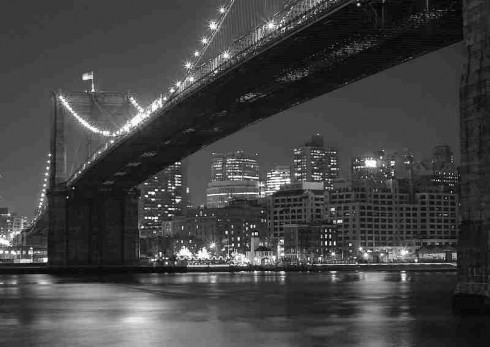
New York is a town without time, but it has a date. I moved to the city after the attacks. These are the things that made me a New Yorker.
I lived in a studio built illegally on the roof of garbage truck repair depot by one of Brooklyn’s most notorious Hasid slumlords, woken weekdays by the smell of exhaust leaking through our floor.
I listened to hundreds of hours of music while riding subways. I overshot my home stop less than half-a-dozen times because I was drunk, and once because I was flirting with a thick-legged blonde dressed in gingham who was on the way home from her shift at a barbecue joint. I got her number but never called.
I worked in Times Square, photoshopping handbags for a catalog company, masking models’ hair from a $200 leather handbag to make a brown bag look pink, or leather like canvas. I took my smoke breaks on a perilous concrete perch that faced an inner courtyard of four buildings, flicking my butts twenty stories down.
I blindsided Nick Denton over instant message one evening, asking him why there wasn’t a videogame-themed counterpart to Gizmodo. He said he preferred email. By chance, I took over Gizmodo a couple of months later, eventually wrote thousands of blog posts, had a minor nervous breakdown, and learned how to write. Choire Sicha, Noah Shachtman, and Brendan Koerner picked me up by the scruff of my neck and told me how to do it.
I went down on a girl in the back of a moving cab, later to finish the evening on her fire escape in Harlem, where I ejaculated across the side of the building.
I discovered I needed glasses, the frames of which became thicker and darker each year.
I lived in four different apartments, each better than the last, until I made the mistake of moving in with roommates.
I had an irrational, ignorant crush on a witty young German girl with a Jewish name, who later starfucked a Jewish writer with a German name.
Having decided to try an open relationship with my soon-to-be-ex, I pressed myself against a punk girl after we’d shared far too much whisky, then spent the next two months listening to The National while walking through Park Slope crying after she’d blown me off.
I had a short affair with a Chinese acrobat who had formerly been a lawyer, until one evening I ended up at a birthday party with a man who revealed himself to be her other partner in such a way that it thrummed every insecurity I had. I looked him in the eye, picked up his whisky and drank it in one shot, set it down in front of him, and said “Happy Birthday.” I then went home and cried.
I watched the iPod go from an affectation for moneyed hipsters to something that every other person on the street owned. I watched the iPhone go from something that would cause people to gather around me in bars to play with to something that every other person on the street owned. I make a living writing articles for an audience that calls me an Apple fanboy.
I made a modest amount of money telling old media companies how they should approach the web, then a similar amount of money hanging around while they didn’t do it.
I spent days at a time sitting at home alone, getting high or drunk, playing videogames, watching television, ordering delivery falafel, and wasting time on the internet.
I shared some ketamine with a lesbian who proceeded to get up from my bed, vomit into my sink, and then pass out. I scooped the thick vomit from my sink to my toilet with my bare hands. Hours later, after I passed out, I woke to find her playing with my genitals. She told me the next morning that she’d “had a nice time.”
I told several girls that I’d “had a nice time.”
I could never seem to score cocaine even though everyone around me was clearly high all the time. Except for when I’d first moved to town and the lone black patron of our corner DUMBO bar would occasionally give me bumps in the bathroom, which led one night to a five minute after hours locked-door dance party to “Hey Ya”. It was the first and only time I can recall dancing in NYC.
I was hit by a full bottle of Coca-Cola thrown at me while biking through some Bed-Stuy projects from what I estimate to be at least 20 yards.
I learned to love the city through the eyes of Gay Talese.
I wrote nothing of any lasting importance, but I wrote several jokes that I found funny enough to read over and over.
I brewed beer, tended my own garden, and repaired craft electronics for the first time in my life, despite having spent most of my childhood on a farm.
I cultivated a love for loud sneakers and bright colors, only to realize that I was basically dressing like 12-year-old Dominican girls.
I was invited to many parties. Most of the time I did not attend. When I did, I would usually find a corner with an open window and smoke, holding court as people would come around and bum cigarettes off me. It was the only way I ever learned to enjoy parties, but I liked it quite a bit.
I never really learned the names of any streets that weren’t letters or numbers, or at least never learned where they were. It wasn’t until the year I left that I could reliably guess where a named neighborhood in Manhattan might be; Brooklyn was 50/50; the other boroughs might as well have been Vermont. (A state which I believe is next to Connecticut.)
When I returned to Kansas City for my ten-year high school reunion, I was a luminary because I lived in New York. I wore a black tuxedo shirt and ripped jeans and lapped up the attention.
I had a one-night stand with a girl from OKCupid who brought me over Theraflu because I had a slight cold. As I came she pulled me into her breasts and said “Shh, it’s okay.” And I kind of liked that.
I went hiking the Hudson valley a couple of times without using a car. On the way back from a solo trip where I’d nearly stepped on a rattlesnake, a man on the subway asked me if I were Swedish. It was then that I realized that I looked like a Swedish mountaineer, complete with knee socks, high boots, and a plaid shirt.
I started my own “web publishing company”-a web site-and drove it into the ground due to some really dumb business decisions. I produced some of the best content I have ever done, of course, which now lives online forever if I keep paying the $90 hosting bill each quarter.
I once had sex with a hairy woman who was incongruously proud of her ability to jam my penis deep into her vagina with a constant, threatening force. I stopped dating her when she corrected my use of “prideful” when she preferred “proud”.
I never grew tired of crossing a bridge at night in the back of a cab, watching the lights and the ships.
I cried when I first came back to the city after I moved away, but didn’t cry when I left.
Joel Johnson prefers “prideful” to “proud.”
The End of the 00s: Hope You Enjoyed Your Brush With Rock 'n' Roll, by Leon Neyfakh
by The End of the 00s

I was in 10th grade when this decade started. I learned something that year, that spring specifically, that I’m glad to say I’ve never forgotten.
It started, as so many things did this decade, with an IM. The IM was from my friend Bennie, a guy who lived in Milwaukee that I knew from nerd camp the summer prior. Bennie was home-schooled and wore a floppy red knit hat all the time. Bennie and I kept in touch after camp via AIM and had taken the Amtrak to visit each other a couple of times at our respective homes. He was in a band called Road Reviews, and they were about to go on tour.
I loved Road Reviews. Bennie was the guitar player and he sent me everything they ever recorded, even acoustic demos he was working on by himself. For all that, I had never seen them live because prior to the tour that spring, which was going to take them south and east, they had only played around Milwaukee. I lived about an hour and a half away in Oak Park, IL, a suburb west of Chicago, home of Frank Lloyd Wright’s studio, Ernest Hemingway, and the boy who played Dirk in Rushmore.
What Bennie wanted to know was whether I could possibly set up a show for Road Reviews in Oak Park the night before they were supposed to play in Chicago. “If you can’t, it’s fine,” he said. The idea was they’d leave for tour a day early and get an extra show in somewhere in the Chicagoland area. If I could do it, awesome, Bennie said. If not, no big deal. I told him I’d make a couple calls.
Three weeks later, on a Friday afternoon, I was going to the church across the street to talk to the guy who would be chaperoning the show that night. I had reserved the church basement for two hours, and had booked two acts in addition to Road Reviews. The cover charge was going to be five dollars.
I told the chaperone that the first act was going on at 8:30.
“It’s not going to get loud till 8:30 or so, and then it’ll probably be loud until 10,” I said.
The guy shook his head. “It can’t be loud after 10,” he said, firmly but not unkindly. “At 10 it’s gotta stop.”
He made that gesture with his hand where you pretend you’re cutting your head off. He was bald and looked about 60. Even if I hadn’t recognized him from past shows at the church, it would have been clear from his tone of voice that I wasn’t the first amateur concert promoter from the high school that he’d had the pleasure of dealing with.
“Just make sure everyone starts on time,” he said. “Control your people.”
The headliner, a six-man jam band from my school called Snowman Saffron, was chosen strategically. Which is to say, I thought they sucked but I also knew they were the most popular band at our school and would bring in a lot of people. When I asked Jack, the bass player from Snowman Saffron, if they’d do it, he said they would as long as they got at least 45 minutes and got to play last. I agreed to these conditions, hoping privately that that all those Snowman Saffron fans would come for the whole night and see Road Reviews even though they weren’t intending to. Certainly I could not count on my involvement to bring the crowd, and Road Reviews, while rather successful in their hometown, were like 17 years old and completely unknown to people at my school. I could count on my friends and their friends, maybe 20 people, and also the freshmen who came to every church concert no matter who was playing. But without Snowman Saffron, I was looking at a very small turnout.
My pitch when people asked me about the flyers I was putting up was that Road Reviews was this really great band with a rambunctious female vocalist, who wanted to make punk music that people could dance to. To me at least this sounded radical at the time. I was excited to be bringing it to Oak Park-introducing this band to my friends and being, in a very real way, the first stop on Road Reviews’s first national tour.
Though I owned their CD and listened to it several times a week, Bennie was the only person in the band I’d met. The rest I would see for the first time when they arrived at the church in their van. Two days before the show, Bennie told me that they had a friend coming with them, a 14-year-old boy who called himself Hamstain and who wanted on the bill. Bennie described him as a goofy, hyperactive rapper from Mequon, WI.-a natural born performer.
“This guy does not let anyone in the room ignore him,” Bennie said, over IM. “He gets in everyone’s face.”
At first I said I couldn’t. Posters were already up advertising Road Reviews and Snowman Saffron. I’d already told the chaperone who was going to play when. Adding another act would mean recalculating everyone’s time to allow for an extra set and an extra 15–20 minutes of setting up.
I put Hamstain on third, and made new posters for school that listed him as a surprise guest. Time was going to be tight but it looked like it was going to work out.
By the time they pulled up, I’d been walking up and down the block for 15 minutes, checking my watch cartoonishly like Doc Brown in Back to the Future when he’s pacing outside the clock tower waiting for Marty. Hamstain got out of the van first. He was tall and spindly and had tortoise shell glasses and an appalling haircut. He was chewing gum and carried a backpack on one shoulder. I introduced myself and he asked me if there was a bathroom inside. I said yes and he waddled toward the church, where you could see the chaperone sitting behind a table collecting everyone’s five dollars. I watched Hamstain interact with him and reach an understanding. Then he disappeared.
Bennie shook my hand bro-style, and introduced me to the rest of the band. They all said hello and then we started carrying equipment down to the basement. It took two trips.
The basement had low ceilings and a cold linoleum floor. There were thick columns in front of the stage on either side, and a basic light rig hanging from the ceiling. The way it worked was you went around to the back of the school, paid the chaperone at the door and then went downstairs into this little lair. It always felt slightly too big, such that no show ever felt full. While we set up a couple of my friends walked in and took seats on the floor in front of where everyone was going to play.
By the time Bennie was done plugging everything in and the drummer had set up his kit, it was half past eight, and I wanted them to get going. 30 minutes for Road Reviews, I figured, plus 15 minutes for Hamstain, meant I was cutting it damn close.
Just then Bennie asked came up to me and asked where there was a place nearby where they could get some food. “We’re starving,” he said. Hamstain burst out of the bathroom, wearing a navy blue jumpsuit and, I think but I’m not sure, a plastic gold crown around his head. “Can we go get some ‘za?” he said.
I stammered but had to say no. There was no time for pizza. Snowman Saffron had stipulated 45 minutes and the chaperone had stipulated 10pm. If everyone was going to go and get pizza now one or the other of those stipulations would have to be violated.
There were maybe 20 people in the room now, mostly still people I recognized but a few of them unmistakably members of the Snowman Saffron entourage. Hamstain noted, reasonably, that it seemed like they should wait to go on anyway so that the crowd could grow a little. I had to explain about the chaperone.
Ten minutes later Road Reviews took the stage and clicked off. About a third of the audience stood along the back wall, a third standing up towards the front, and the rest spread out in between. I stood off to the side and as they got going tried to shake my body in a manner that suggested I really wanted to dance but didn’t feel like cutting loose while on the job.
I looked around to see if people seemed into it. My friends up front were trying, I could tell, bouncing their shoulders and clapping along at some parts. But overall it was pretty subdued.
The singer, meanwhile, careened around the stage and screamed the words. After the first song was over she said “Hello and thanks for coming, we’re Road Reviews” and didn’t address the audience until she hit a breakdown a few songs later where the guitar drops out and it’s just bass and drums. “Come on, you guys, everyone clap along,” she said, demonstrating from the stage. I followed instructions but not everyone did.
Four songs in the singer got mad. “Just fucking dance, you guys,” she said, looking at my friends in the front of the room and gesturing with her hands. “It’s not that hard.”
I watched my friends in the front exchange bewildered looks and whisper things to each other. A couple of them went and sat down in the back. The rest stayed put but stood without moving, their arms crossed and their faces unamused. Two songs later: “This is gonna be our last one.”
Bennie and his band were still breaking down their set when Hamstain plugged his Discman into the PA system and took the microphone. “Hey,” he said, so loud that everyone’s hands went to their ears. “Someone please kill the lights.”
Someone did and Hamstain turned on his backing music. “Oak Park,” he said. “More like fucking Joke Park.”
From across the room I saw the chaperone peeking his head down from the stairway. About ten minutes later he’d make his way toward the stage to get a closer look and Hamstain would jump on his back.
When that happened, I had to end the set. The chaperone wasn’t hurt but he wasn’t happy either. “Ten,” he said to me before going back upstairs.
At 9:30 all six guys from Snowman Saffron were up on stage, about to launch into the first of what would have been three fifteen minute-long suites. The room was full now now; evidently all the SS fans had waited outside and come in only when someone told them it was time. I watched as Jack prepared to strike his first chord and when he did I swallowed with some relief and went over to get the cashbox from the chaperone. He gave it to me and I counted the money. $200 dollars, which meant 60 admits and $50 to each act.
$100 in hand, I went out front where Bennie and the rest of them were sitting cross-legged in a circle and eating a pizza. The van wasn’t packed yet but all their gear was in a pile on the lawn next to the curb. I sat down and handed Bennie the money. “Great set,” I said. They mumbled thanks and the singer lit a cigarette. “The crowd was kind of lame,” she said, exhaling and looking sideways at her sneakers, which she had written on. “Is that always how kids from your school are?”
I glanced at Bennie, cleared my throat, and paused as I tried to push the tightness out of my mouth and shape it into something resembling a smile. “Like the man said, I guess, Joke Park,” I said finally. “People here don’t really dance.”
Hamstain grinned ear to ear. “I coined that shit,” he said. “Just so you know, when I coin something it sticks.”
Before they left Bennie gave me a CDR with a bunch of new Road Reviews songs on it and a couple of demos he’d recorded on his computer. He didn’t know it then but it was the last set of songs the band would ever record, because at some point during the tour, rumor was it was in Indiana, the singer and the bass player started hooking up and a few months later the whole thing came to an end.
When they had their last amp in the back of the van I asked Bennie if he was sure they didn’t need a place to crash the next night after their show in Chicago proper. He said they were good. “We’ve got Oberlin the next day,” he said. “Thanks again for everything.”
Snowman Saffron were still playing when I came back inside. We were about to hit 10pm and I went up to the stage to make sure Jack knew it. When I stuck out my hand and pointed to my watch he nodded, and a few minutes later they were bowing. Jack gave me look as he broke down his gear, clearly unhappy about only getting to play three of the planned four suites.
As everyone filed out, I stayed back to clean. My friends, three of the ones who had stood out front and stuck around, helped. At 11 p.m. we killed the lights and all went home. I fell asleep thinking about what it’d be like to be in a band. How would you know if you were any good? And if the band broke up pretty quickly, would that be something you carried around with you forever?
Leon Neyfakh is a reporter at the New York Observer.
The End of the 00s: Decade of Suck, by Regina Schrambling
by The End of the 00s
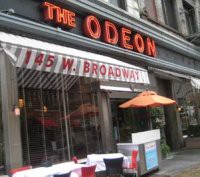
Hate to infringe on Rudy’s trademark, but of course the memory cached in my cranial sieve is from right after 9/11. I was out traipsing around the city for a Times story on how restaurants were recovering, and on that Sunday I passed the Odeon on West Broadway. Almost every sidewalk table was occupied, with shiny, happy people swigging mimosas in the sun, literally blocks from the reeking fire. The scene made my lead as a sign of hope, and the owner called to thank me for helping business, but as time’s gone by, the reality has looked grim. Those blithe brunchers were ingesting incinerated human beings with their OJ. We were all breathing the same thing. The melting-plastic smell blowing in the wind even way uptown masked something worse.
Not to natter on, but thinking back on that makes me realize those were the Times’ glory days, not least because the endless “Portraits of Grief” forced it to cover poor and rich alike for once. My editor, not yet encumbered by the backstabbing Times-person I refer to as Krazy Kunt, went into overdrive trying to make our “getting and spending” section relevant with so much awfulness in the rest of the paper and with the anthrax mucking up the mail. She went for every idea I came up with, in that brief shining period after I had said I could no longer waste my life trying to make vibrant soup out of wilted carrots by editing the sorry likes of Floho and the Egotist, et al, and needed to write. I went out with no worries about expenses to do stuff like eat in timeless restaurants and fly to Montreal to conjure a happy Christmas.
Rereading my story just now, I had two kicks to the head: Who was that crazy typist who could think clearly enough to string those words together? And who could have predicted it would be a chronicle of the decline of the food scene foretold? In those nights trekking all over Manhattan with John Hiatt’s then-new “Thank God the Tiki Bar is Open” echoing in my head, I saw fancy French institutions evoking The Shining and lesser new places packed with people craving intimacy. Burgers and food carts, here we come.
And in recollecting all this, I dredged even deeper and remembered a night way back in Arizona when my too-poor-for-a-phone family came home from a camping trip and had the town cop pull up shortly afterward. Buck Snoddy (no joke) had come to inform my dad that his relatives in Oklahoma had called the police station to say that his mom, my grandmother, had died. The shock for his seven little kids was mostly that he had a mom-first we’d heard-but we all toddled off to our trundle beds terrified, convinced nothing would ever be the same.
Next morning, we got up and it was if it had never happened.
Regina Schrambling vents at Gastropoda.
The End of the 00s: The Night We Sneaked Into the Center of the World, by Adriane Quinlan
by The End of the 00s

In the year leading up to the Olympics, I was working as a speed typist for the Ministry of Propaganda and I had agreed to spend the first night of Chinese New Year at the apartment of my roomate’s aunt. She lived in the far North of the city and the cab that took us up there skirted the stadiums that were still being built. You could smell the construction — an awful, coppery whiff — and see the things hulking there, but that was as close as you got. Shoddy plywood fenced the park, with guard huts at various intervals illuminated to show stern-faced bao an grumbling inside.
Of all the new buildings, it was the Bird’s Nest Stadium that most tempted one toward it. It was supposed to look like a nest, but instead it looked like a giant airy brain. The outer wall had been wrapped in a kind of twisted metal cage, which left huge gaps between the bars that one could easily walk through. Our friend A____, an architectural critic who was joining us for New Year’s, explained that it drew you in because there were no hard edges, no walls against you — you felt like you could just walk through it.
“Uh-huh,” we nodded, “uh-huh,” letting him talk, thinking nothing of it.
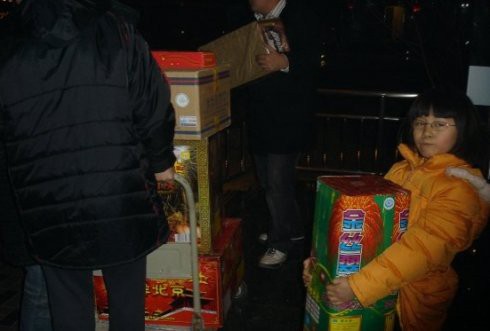
At the aunt’s apartment, we made dumplings. I took a post-dumpling siesta on a bed with a white coverlet. We watched a TV special, played with the aunt’s roomba, and ate a lot of various nuts from metal bowls. When it was dark, we all went into the courtyard and shot off fireworks. The hazy Beijing air became hazier and the fire-crackers were so loud that it became harder and harder to hear the shots in other compounds going off around us in staggered rhythms.
Full of energy, full of dumplings, we started walking home. It was a couple of miles, but there were no cabs to catch anyway — the drivers were all home on holiday. Under an overpass, a couple of kids were lighting fireworks on the ground and roller-skating between them. Later, we passed a gathering of neighbors out on the street aiming rockets with fiery, green tails over the road we were walking down. They stopped, waited for us to pass, and then started up again.
And then we were at the edge of the stadium.
The plywood fencing was even shoddier up close. There were gaps between the sections of wood where mud had shifted the boards — angling one outward and the other inward so that a triangular opening appeared. The guard huts, though still lit, were empty. (The guards were probably off shooting fireworks themselves.)
We started talking about what might happen if we sneaked in. No one would hear us — the fireworks were too severe. It was the perfect night for it.
“You know, we could get deported for this,” my roomate said.
But before we had really thought about it, we were doing it. A____ found the perfect gap and after only a few steps through the muddy field in our dress shoes, we found a board and tip-toed along it. Every so often we heard something — a rustling! what was that? — but it always ended up being nothing, just one of us.
We didn’t get any further than the edge of the thing. There was a tall wire fence, and we stood with our fingers looped through it, looking in at the stadium. The whole thing was lit — a massive metal knot glowing white and red with the sky at its edges opaque with smoke.
Months later we would go to the Olympics, see the whole choreographed spectacle, watch large women throw shot-puts and that Jamaican guy run really quickly. But it wasn’t the same as when we had been there alone and gone suddenly quiet, just looking at it, feeling like marbles that had been dropped in a funnel and had rolled, powerlessly, toward what had drawn us in.
Adriane Quinlan lived in China for a year. She now blogs for MTV, mostly about Shakira.
The End of the 00s: When the Geeks Took Over, by John Sellers
by The End of the 00s
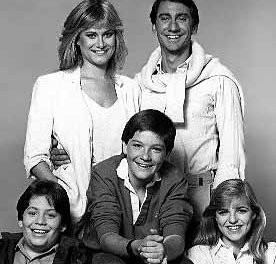
“I am really glad that digital video cameras and file sharing didn’t exist in 1985.”
Like everybody else, this was my initial reaction the first time I watched the Star Wars Kid video, those 108 cringe-worthy seconds of 14-year-old Canadian student Ghyslain Raza wielding a golf ball retriever as though it were a double-sided lightsaber, which gets my unsolicited vote as the definitive pop-culture moment of the 2000s.
If those tools had existed back then, surely I would have recorded my unironically choreographed dance routine to Duran Duran’s “The Reflex”, and surely my sadistic older brother would have uploaded it. Certainly he would have turned me into a Reagan-era Chris Crocker by surreptitiously filming me as I sat in my room and bawled after learning that the Jason Bateman sitcom “It’s Your Move” had been canceled. And I shudder to think what could have happened that time I went LARPing and got smacked in the groin by a friend’s tinfoil-covered broom handle/bo stick.
In the 2000s, we learned that most of us love nothing better than to watch videos of other people’s embarrassing moments all day long, and to pass them around to our friends, and by extension, the world.
And the person who taught us this was the Star Wars Kid.
Obviously, the video, which has been viewed over 900 million times since it went viral at the end of 2002, represents the best and worst of the past decade. It’s entirely D.I.Y., the ethos that gave rise to bloggers, social networking, and Tila Tequila. It has schadenfreude (a term I hate, because it reminds me of Mummenschanz), which led to The Soup, Perez Hilton, and the mainstreaming of tabloids. But most importantly — and this is where it separates itself from the Atlanta Grape Lady video, Lolcats, and the Susan Boyle clip — the Star Wars Kid is entirely dork-centric, surfacing at the start of a decade in which geeks took over the world, for better or worse. I mean, no one would have cared if he’d just been pretending to be Mike Tyson.
As hilarious as the video still is, the lasting impression it unfortunately makes is that it would suck to be poor Ghyslain Raza. Getting caught pretending to be Darth Maul has got to feel a lot worse than taking a tinfoil bo stick to the genitals.
John Sellers is the author of Perfect From Now On: How Indie Rock Saved My Life and writes a blog called The Enthusiast at True/Slant.
The End of the 00s: Family Business, by Cord Jefferson
by The End of the 00s

For our purposes here, I suppose my father’s best story is the one about the time he became Larry Flynt’s lawyer. Wandering around a raucous party in Columbus, Ohio, in the early 1970s, my dad and his friends somehow found themselves in some dimly lit back room with Mr. Flynt, who at that moment was the very drunken but otherwise able-bodied purveyor of a booming chain of strip clubs. The consummate smut peddler, Mr. Flynt promptly offered everyone cocaine, and my father’s friends, some of Ohio’s best and brightest attorneys and judges, dove in with the zeal of men with half their responsibilities. While his friends huffed and puffed, however, my father politely abstained, choosing instead to hurry his tumbler of Scotch and head home.
The next day, his office phone rang. “This is Larry,” the caller croaked. “You’re the black guy wouldn’t do the coke, yeah?” My dad answered that he was. “That’s good,” Larry said. “I don’t need some horse shit junkie representin’ me. I can do that all by myself.” And so began my dad’s brief stint on retainer for America’s second most famous pornographer, who apparently marveled at my father’s avoidance of drugs decades before I would.
As he tells it, the only time my dad’s ever tried pot, he wound up trembling and hallucinating in the middle of a busy street near his law school, the lights and honking giving him vivid flashbacks of his most recent tour in Vietnam. He would later come to believe that the joint he’d smoked that night was laced with bad LSD; nevertheless, that one tainted experience was enough for him to swear off marijuana forever. “And you never did anything in the war?” I remember asking him, knowing full well that, had I been there, I’d have been trying to shoot up whatever I couldn’t shoot. “Never,” he said. “Killing people every day fucks you up enough.”
Growing up listening to my dad’s Miles Davis and Led Zeppelin records, I developed countless dreams of smoking grass with cats in Harlem and expanding my consciousness with the mud minions at Woodstock. That he had the opportunity to do all that and didn’t was a constant source of frustration and confusion for me, as if there was some river between us composed of bongos and bongs and liquid acid. But more than his immunity to the general lure of illicit drugs, the main reason I considered my father’s clean living so remarkable was because I was well aware of his unfettered appreciation for alcohol and cigarettes.
My mother will tell you that my dad “had a problem,” but I can’t be certain of where in that assessment truth ends and (reasonable) ex-wife embitterment begins. My father never got violent or drank vodka at breakfast or drunkenly crashed into our garage or anything; I can’t tell you with any shred of accuracy that he was some alcoholic monster out of a Southern Gothic novel.
What I can tell you about is the time my father pulled up to the ID checkpoint at our country club’s July 4th party with his right arm bent awkwardly behind his driver’s seat, his hand clutching a glass of Scotch whose ice tinkled cheerily two inches from my and my brother Derrick’s knees. I can tell you about seeing him light a Dunhill with a just-smoked, still-burning Dunhill, before ordering another pint at whatever restaurant it was this time. I can tell you about the night I got him by the lapels at the front door and shouted, “This is why she left, goddammit!” motioning toward the six-pack of Harp lager he’d brought into our newly motherless home.
And like a wife, a body can only take so much. The night my father lost consciousness and collapsed, in early 2006, the doctors told us to not panic, because it was still unclear what was happening to him internally. “Perhaps he’s just dehydrated,” they’d said. Relaying this information to me, my brother Trey’s voice sounded like mine had two years earlier, when, looking at a brand new Volkswagen I’d managed to jam under the rear tires of a dump truck, rendering it an immovable mass of shit, I’d called my mom and told her, “You know, I think it might be alright.” Like me, and unlike the doctors, Trey had watched our father spend decades filling his body with butter, salt, smoke, beer and brown liquor. He wasn’t just dehydrated.
A month later, the mystery was solved: it was the kidneys.
Renal failure works quickly, and within two years of his initial diagnosis, my dad, who was by then living and working in Saudi Arabia, was going to dialysis three times a week. The tiny filters in his kidneys had been mutilated by hypertension, and they were now operating at five percent of their normal capacity. So it came as no surprise when, in February 2008, my brothers and I received an e-mail whose subject heading was frighteningly brief: “Help.”
And it began: “I need your help. I need a kidney. I need to ask one of you for a kidney. So I’m asking.”
The message went on to expound on a lot of things, but, like grain and water and yeast, all of them could be distilled down to one thing: guilt. “I’ve not taken care of my body,” he wrote, “and that makes me angry. And for a while it made me think I have no business asking for your assistance in this matter.” In Riyadh, where a beer is as hard to get as a bikini, my dad was now dry, dying and ashamed. Hester had her letter-he had a pair of organs scarred with glomerulosclerosis, which were now silently destroying him from the inside like some traitorous fifth column.
“Fated” is a word that Florida Keys palm readers use, so I’ll not. Instead, I’ll just say I think it was weirdly helpful that I happened to be so shitfaced on whiskey when my dad asked me to give him an organ.
After a particularly bad week for a variety of reasons I can’t now remember, I returned to my Greenpoint apartment stumbling, bleary eyed and exhausted, my mouth and lungs feeling like the dessicated wallpaper in a house fire. This wasn’t a rare occurrence, but rather a habit I’d fallen into gradually-first in college, then in Los Angeles, then in New York. I opened my e-mail and began reading my dad’s pages-long message, which was difficult to get through because I had to keep returning to the beginning when my bloodshot eyes and beer-shot mind lost track of where I was. Finally reaching the end, which included the phrase, “YOU DO NOT HAVE TO GIVE ME A KIDNEY!” I sat and pondered what I’d read, angry at myself for taking in something so important instead of just passing out.
I considered my dad’s guilt, an emotion I’d once heard him call “worthless,” and an emotion which now throbbed in his kidneys. I recalled how angry I’d been at him for always ordering a beer at dinner and for never taking seriously the quit smoking remedies I’d clip from newspaper. And I remembered how weak my arms felt when I lifted my mother’s moving boxes. Mostly though-as is often my curse-I thought about myself.
Sitting in bed with my back against the wall, that e-mail looking up at me from my lap, I thought about the beginning of my own inclination toward inebriation. I thought about causes and effects, and I mentally marinated big ideas about morality until the room was bright with morning. Eventually, while fruitlessly trying find shame in being drunk while reading my dad’s e-mail about drinking, I finally latched onto something real, my most important discovery of the past decade: Human beings do singular things for about a thousand different reasons, most of which other people will never understand, even though it’s likely they do similar things themselves.
It sounds like a simple enough discovery, but for me it wasn’t. When you’re young, you’re taught that someone eats because they’re hungry, or yells because they’re mad; the narrative thread that connects thoughts and actions is short and sturdy. It’s not until you grow up and start making real decisions that you begin to comprehend the complexity of the web that connects a person’s heart and mind to their hands. And once you do that, thanks to innate inquisitiveness, you then feel the need to parse the whole thing down to bite-sized pieces. It’s this inclination that’s ruined so much news (“Columbine happened because of Marilyn Manson!”) and most movies (“The bad guy kidnaps people because he is evil!”), not to mention plagued me with questions throughout a large chunk of my adult life. I used to think my dad drank because he hated my mother, or because my brothers and I weren’t what he expected.
Not only that, but I pored over those possibilities in my mind millions of times, even when hearing that he was very sick and needed my help. To this day, that’s something I’m deeply ashamed of. Because when you begin to make peace with the fact that you can’t dissect the whole world, and you you truly decide to leave the mysteries enshrouding all bad things to the geologists and neurosurgeons, you’re left with a crisis mode that I’m probably paraphrasing Jesus to write: simply do right when you’re given the opportunity to do so.
But in these past ten years, I’ve found myself reaching for a bottle for a variety of reasons, most of which have nothing to do with anger or regret.
I’d like a drink every time someone tells me to “play the game and get on Twitter”; I’d like a drink when I have to have my salad weighed at lunch; I’d like a drink when extremely rich people lie to everyone and get away with it; I’d like a drink when I have to ask the drug store clerk to unlock the deodorant. I’m not necessarily mad when these things happen; they’re just some of my personal quotidian indignities that, if left unmitigated, would probably drive me insane. So sometimes I drink a few beers and forget about them, sometimes I write about them until I feel better-either way, I live to face them another day. I have no idea why my dad made himself sick, I just know that he did, and that I needn’t consider it when he writes me, dying.
On July 21, 2008, after a quick iodine shower, a surgeon cut a 10-inch incision into my flank and removed my left kidney. After a couple hours, in the very same room, that kidney was then inserted into my father’s abdomen. By medical estimation, the transplant extended my dad’s life by about 20 years. Even then, when I’m 46, I still don’t think I’ll know why my father drank and smoked so much. What I will know is the look on his face the day he came into my hospital room with a piece of me in his guts, forever. I’ll remember his eyes, wet with worry and hope, a zillion reasons for a beer resting just behind them, out of reach.
Cord Jefferson is a writer-editor living in Brooklyn. His work has appeared in National Geographic, GOOD, The Root and on MTV.
The End of the 00s: Horrible Decade of Constant Terror Doesn't Officially End Until the World Does...
The End of the 00s: Horrible Decade of Constant Terror Doesn’t Officially End Until the World Does, In 2012, by Ken Layne
by The End of the 00s
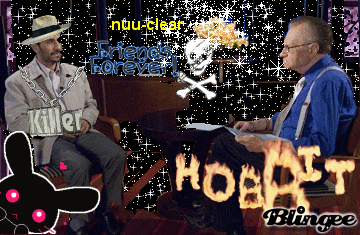
Y2K was the thing that was going to Destroy Earth when this dumb, nameless decade began. It’s hard to remember the pre-Muslim threats, but this was a big one: All the planes were going to fall out of the sky, at midnight on January 1, 2000… based on the time zone they were flying over, I guess? It was never very clear, which is why it was such an effective End of the World scenario. Also, your teevees and ATMs would stop working. Because of those rotten computer programmers! Me? I was drunk in Madrid, which had not yet been blown up by Muslims, and also airfare was incredibly cheap because nobody wanted to fly around New Year’s (because of Y2K), and flying was still “fun,” as in, you just showed up at the airport maybe 20 minutes before your flight, drink in hand, shoes on your feet, laptop closed and actually left at home because what was WiFi, anyway?
ANTHRAX: Some people still remember 9/11 and the outrage caused by 1980s political rap group Public Enemy’s dismissive song about the future, 9/11 Is A Joke, but did you know there was a second 9/11, also in September 2001, involving not Arabs flying planes but Arabs mailing poison to you? A bunch of people died, and well-off people with health insurance freaked out and bought this prescription drug called “Cipro,” which maybe would help if you got the Anthrax, and entire U.S. Postal Service mail processing centers were shut down, and even our most important network news anchors (ha, remember them?) were at RISK. But it was actually just some psychopaths from Our Own Biological Weapons Labs having a bit of Joker-style fun at America’s expense, ha! Nobody was ever arrested or anything, because WHOA AVIAN FLU!
AVIAN FLU, known by its Chinese name “SARS,” was going to decimate the world’s population — or worse, as “decimate” technically means, “take out every 10th person,” which was the actual political strategy of the Roman Army motherfuckers, who punished mutiny by having each group of 10 soldiers partake in an early form of Iowa Straw Poll, and one of them got clubbed to death by his buddies. Anyway, during the Avian Flu Horror, everybody with health insurance got prescriptions for Tamiflu, which was invented by Donald Rumsfeld before he also invented SARS in his underground Pentagon laboratory, where he stood up torturing “SARS cats” all day.
HURRICANE KATRINA actually did kill thousands of people, but they were poor blacks so nobody really made a fuss, except for typical liberals.
ACTUAL 9/11 also killed a teeny tiny fraction of the people in a single (liberal) city, but it magically made the Entire Nation freak out to such an insane level that even Appalachian townships suddenly had “terrorism czars” to actually terrorize their own dim-witted citizenry, “just in case.” Everybody was pretty much freaked out all the time for three or four years, until about half of the nation’s voters woke up one day around January 2004 and said, collectively, “Hey wait a minute ….” Bush was re-elected anyway. Suckers! (Runner-up: Warbloggers!)
MEXICANS were supposed to pour over our porous border and do all kinds of nasty shit to Americans, such as a) speak Spanish, b) rape white women, c) take our janitorial and spinach-picking jobs and d) something about MEChA and/or Shakira. But then the economy collapsed and even Lou Dobbs couldn’t be bothered to whine about Mexicans. Now he, too, is jobless.
SPINACH itself was the culprit in another nationwide freakout, over “washed spinach,” because some of it had some poop on it. Nobody ate spinach, tomatoes and other vegetables ever again. But they did continue to enjoy the Baskin-Robbins Pig Bucket, a 72-ounce “ice cream shake” made of candy-bars, corn syrup and trans fat.
H1N1, commonly known as Mexican Pig AIDS, was going to kill off a third of the nation, Spanish-flu style, but seems to have faded out before doing too much damage, just like everything in the terrible 2000s.
The only real horror visited upon most Americans in this dumb decade was the Greatest Recession, still doing its special dark magic in the areas of employment, housing, social services, etc. This decade will one day be remembered by economists (in China) as the last period in American History when people had a reasonable expectation of employment and comfortable housing. Because it’s pretty much a hilarious “mash up” of The Road and Idiocracy from here on out, and the soundtrack is a perpetual YouTube loop of Bob Dylan’s “Must Be Santa” party polka, the end.
Somehow, Ken Layne owns Wonkette.
The End of the 00s: Why Did We Not Appreciate 2007?, by Sara Vilkomerson
by The End of the 00s
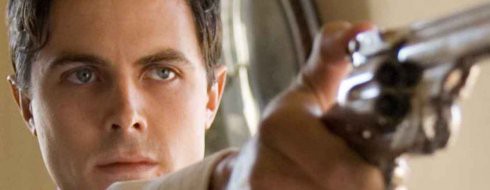
Do you think moviegoers in 1967 knew they were lucky? That was a year when they got to wake up on lazy Sundays and walk outside to see Bonnie and Clyde, The Graduate, Cool Hand Luke, Guess Who’s Coming to Dinner or The Heat of the Night for the very first time. I’m guessing no. (BTW, tickets were $1.25. And cigarettes were 30 cents. But on the other hand, there was also that whole Vietnam thing.) And neither did the 1974 audiences who were living through a year that would include Chinatown, The Conversation, Godfather II, and Alice Doesn’t Live Here Anymore (not to mention Blazing Saddles!)-or those 1980s peeps who had to choose between going to see Raging Bull or Ordinary People. You know why I know this? Because I didn’t appreciate 2007 as it was happening.
When the scholars (or aliens from outer space, take your pick) look back at 2007 they’ll probably shake their heads or tentacles in wonderment. Because, oh yes, it was some heady, heady stuff cinematically speaking.
Let’s start with the nominees for the Academy Awards Best Picture: No Country for Old Men, Juno, There Will Be Blood, Michael Clayton, and Atonement. Juno is the lightweight in this group, for sure, but try to remember how much people liked this movie before the inevitable backlash against Diablo Cody, Michael Cera and, generally speaking, fast-talking, wise-crackin’ teens (cause God, yeah, they’re annoying). On the plus side, Jason Bateman! And here is when I should talk about the fact that Juno director Jason Reitman will probably win best picture in 2009 for Up in the Air. But I won’t. I won’t I say!
Anyway. I have no doubt whatsoever that when looking back at the 00s (which I still think should include 2010 no matter how times I count it out on my fingers) that both No Country for Old Men and There Will Be Blood will be considered classics; Michael Clayton should be taught in every scriptwriting class in the world; and if Atonement had been released in any other year than ’07, it would have probably won Best Picture (for sheer prettiness! And hot sex against a bookshelf). But this is only part of the story of 2007! Let’s take a look at some of the other releases (that’s what she said!):
§ The Assassination of Jesse James by the Coward Robert Ford
While I very much appreciate No Country For Old Men and There Will Be Blood, secretly this was my favorite movie of the year. It is not only beautiful, moody, and plotted like something out of the glorious ’70s, but it has a very interesting-in-hindsight cast: in addition to Brad Pitt (who is actually really good in this!), Sam Rockwell and Casey Affleck (who is excellent), the supporting cast includes Jeremy Renner (The Hurt Locker), Paul Schneider (Bright Star), and Garrett Dillahunt (The Road, Last House on the Left). Do not be put off by the title. Watch it.
§ Zodiac
Yes, Zodiac. I’ll just say it: Better than Benjamin’s Buttons.
§ Away From Her
AKA the movie that will wreck you for a night or maybe your whole life it is so bittersweet and heartbreaking — especially if you happen to have even a teensy amount of fear of Alzheimer’s Disease. It will probably be remembered as Sarah Polley’s fantastic directorial debut and also for how hot Julie Christie still was in her mid-60s.
§ The Diving Bell and the Butterfly
Another gorgeous movie that, like Away From Her, might make you want to kill yourself and yet somehow hopeful. Sorta. Like in the way The Road is hopeful.
§ La Vie en Rose
The movie that introduced us to Marion Cotillard (who would go on to win best actress in the best dress and give the best Oscar acceptance speech of the year. Youtube that shit right now!)
§ The Lives of Others
Speaking of Oscars! Thought this German film was released in 2006, it did not come to America until 2007. Maybe the best movie of the decade. Boom.
§ Knocked Up
Well? It was an important moment because it was when Judd Apatow became, you know, Judd Apatow. And when we all started hating Katherine Heigl.
§ The Bourne Ultimatum
Doesn’t everyone agree this was the very best of the series?
§ Eastern Promises
Viggo, Viggo, fighting-naked-Viggo, who is oh-so-good. Oh, and Naomi Watts!
§ Into the Wild
Sean Penn directs little Emile Hirsch into almost freezing himself to death! Big beautiful Alaska-before-Sarah-Palin-Ruined-It skies. Pre-Twilight Kristen Stewart! Hal Holbrook will make you cry! Now imagine how much more people would have flipped for this movie if had come out in crappy 2009.
§ The Savages
Philip Seymour Hoffman + Laura Linney + snow + dysfunction = awesome.
§ Lars and the Real Girl
Remember when Ryan Gosling used to act in movies?
§ Gone Baby Gone
There was a time when we all would have laughed our asses off at the phrase “Ben Affleck, director.” And yet? Pretty wicked okay.
§ Before the Devil Knows Your Dead
More Philip Seymour Hoffman with Ethan Hawke, Albert Finney and Marisa Tomei. Sidney Lumet directs.
§ Margot at the Wedding
I know, I know! But try revisiting: not nearly as good as The Squid and the Whale, but not all bad, either.
§ I Am Legend
Perhaps the movie that could best see into the future and what 200Hate and 200Swine was going to be all about. Think about it.
This is not to say that 2007 didn’t have some clunkers too (I’m looking at you, Blood and Chocolate, Ghost Rider, PS I love You, The Bucket List, Reign Over Me, Stomp the Yard, Lions for Lambs). But, when a random 2007 meh weekend included Grindhouse, The Brave One, The Valley of Elah, Persepolis or Control in theaters, it’s hard to complain.
But did we appreciate it? No. We thought the world would just keep on turning and “swine flu” sounded like a funnier alternative to Bird Flu, and everyone had jobs and healthcare, and expected raises and were buying apartments. Ha ha ha ha. Suckers! All of us!
Sara Vilkomerson really hated 2008 and 2009. She works at the New York Observer and is, OMG, a “Top Critic” on Rotten Tomatoes!
